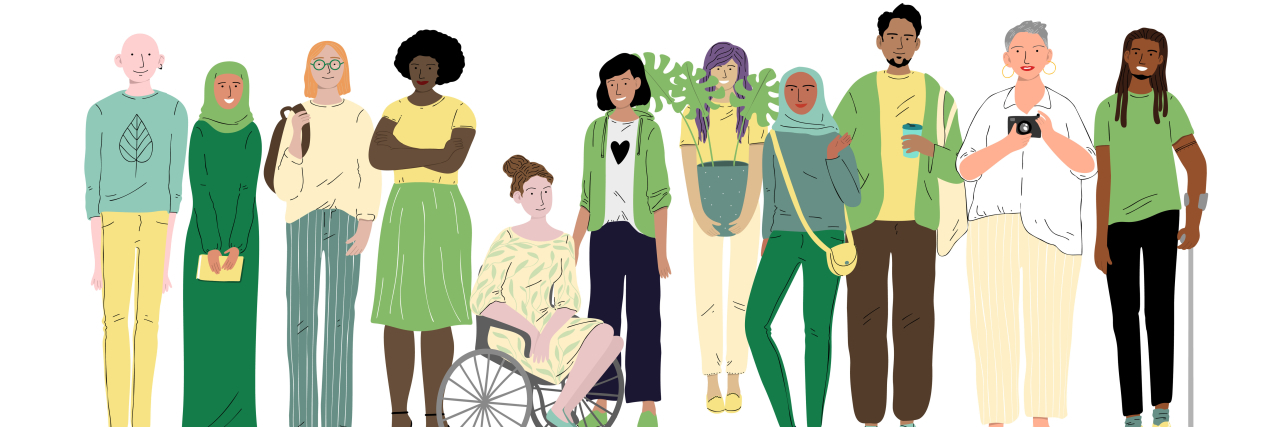Every October is Disability Awareness Month, so institutions will take pains to be seen as welcoming to the disabled community. One recent effort that backfired was at the University of North Alabama’s College of Arts and Sciences, where a tweet asking students to pledge to the use of person-first language was deleted after an outcry from disability activists. Despite the backlash online, the initiative still remains on the college’s website.
For reference, person-first language means identifying as a “person with a disability,” instead of identity-first language, which amounts to calling oneself a “disabled person.” People who use the former verbiage argue that their disability does not define them, whereas those who emphasize the latter feel that their condition is inextricable from who they are. What precisely could have sparked such a backlash from disabled activists? The first answer is that there is no consensus as to the preferability of person-first or identity-first language among disabled people, meaning the pledge was not in concert with the pulse of the disability community.
The second and more glaring issue is that such actions are the worst of what is known as performative wokeness; they change nothing about the system while making non-disabled people feel good about themselves. Disability activists desire many things, but most are united in craving structural change so their lives are more accessible, they have their basic needs met, and they have the same opportunities for success as their non-disabled peers.
Performative wokeness is a term that was coined by Harvard alumna, Jenna M. Gray, to describe the phenomenon of people who appear to support social justice causes to look good, not out of some benevolent motive to change the world. The mere signaling of virtue gets to the heart of what numerous disabled activists feel is wrong with too many awareness campaigns, including Disability Awareness Month.
Using person-first language gives a rote way for non-disabled people to say they helped the disability community, while in actuality doing little to change the systemic inequities that plague the disabled population as a whole. While using the language a given person prefers does matter, since there is no community-wide consensus about terminology, the move UNA recommends is the awareness ribbon equivalent of disability justice.
Whether one uses person-first or identity-first language, the reality remains that disabled people on Supplemental Security Income still don’t have the right to marry in the United States without losing their benefits. The reality remains that the U.S. government forces people on disability with no work history to live on a maximum of $783 a month. The reality remains that disabled people are frequently denied access to the most basic of services — including accessible transportation, affordable and comprehensive healthcare, and long-term services and supports so that they may live in the community, not in institutions. In short, it’s easy to take a pledge; what’s more difficult is to educate oneself about the injustices disabled people face, and then to dismantle the systems that relegate them to a trap of poverty and inaccessibility.
What meaningful steps can be taken so non-disabled people may graduate from virtue signaling to actually changing the culture for disabled people? As was alluded to online, if one truly cares about language, then educate the populace about excising ableist descriptors from their vocabularies. When there are 171,476 words in the English lexicon, there is no excuse to be using language such as “delusional,” “crazy,” and “psychotic.” The same can be said about the words “idiot,” “retard,” and “stupid.” The former terms stigmatize people with mental health disabilities, while the latter marginalize individuals with intellectual and cognitive impairments.
In addition, if non-disabled people desire systemic justice for the disability community, it begins with asking disabled people what they want and actually demanding it from elected officials. For starters, this November 3, vote for political candidates who have articulated disability justice policies that are in concert with what the activist community at large desires. Joe Biden has proposed ending the marriage penalty, indexing Supplemental Security Income to at least 100 percent of the federal poverty level, and making meaningful gains in accessible transportation.
That being said, voting for a particular Presidential candidate is far from enough, as campaign promises are as easily broken as they are articulated. Non-disabled people who are serious about disability justice ought to band together with their disabled peers to hold elected officials accountable, so that meaningful progress may be made for disability justice. Write letters, attend socially-distanced rallies and protests, and volunteer or donate to disability rights organizations. All of these actions will make a meaningful difference for disability justice, so we may finally create the kind of society where disabled people are no longer second-class citizens.
Getty image by Undrey.

